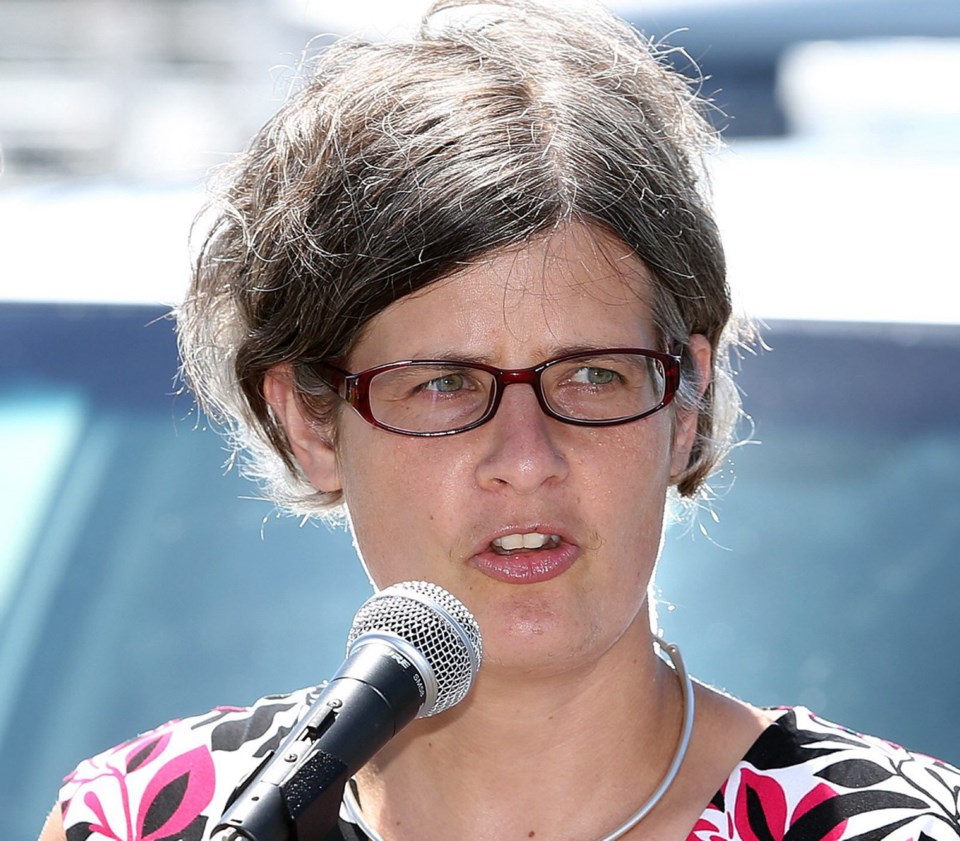Victoria has shaved $20 million off the $50 million it has suggested the region borrow to provide supportive housing and substantially reduce chronic homelessness in Greater Victoria.
The city is now seeking support from the Capital Regional Hospital Board to look at borrowing $30 million.
The revised figure came following a meeting Victoria Mayor Lisa Helps held with stakeholders, including government agencies and social-service providers, to fine tune the proposal.
The Greater Victoria Coalition to End Homelessness estimates that 367 units of supportive housing are needed to end chronic homelessness in the capital region.
“But then further parsing into that [revealed] 185 of those units were meant to be new and 182 were meant to be [provided] through rent supplements,” Helps said.
Last month, Victoria councillors endorsed putting a resolution to the Capital Regional District asking it to investigate borrowing $50 million — at a cost it estimated at about $11.18 a year per household — in order to build 367 units of supportive housing.
It also called for an annual provincial contribution of $7.73 million, or $21,064 per unit, to go toward operating costs.
The revised resolution has the proposed capital costs decreasing while the operating cost increases.
It recommends $30 million be borrowed to build 185 new supportive units. The requested provincial contribution increases to $8.2 million (based on $22,219 per person, per year) with an additional $982,800 to cover 182 rental supplements.
Coun. Ben Isitt said the new amounts aren’t necessarily designed to make the “ask” to the CRD more salable.
“Whether it’s 11 bucks per household or seven [is not the issue],” Isitt said. “From what I hear from the public, a lot of them said they would pay several times that annual contribution to address the issue.”
According to Diana Lokken, CRD general manager of finance, borrowing the money would cost more than Victoria’s original motion suggested.
Lokken estimates borrowing $50 million through the Municipal Finance Authority over 15 years at three per cent interest would cost the average household in the CRD about $22 a year, based on the entire CRD paying.
The cost for borrowing $30 million over the same term and rate would be $13.22 per household.
By stretching the term to 25 years and using an interest rate of 3.65 per cent, the cost would be about $9.78 per average household for $30 million and $16.30 per average household for $50 million, Lokken said.
Details of the resolution
Elements of Victoria’s resolution slated to be debated at the Capital Regional Hospital District Board today include:
• Direct staff to develop detailed annual servicing cost estimates (principal and interest) and property tax impact for an initial 185 new units of supportive housing based on capital costs of $30 million in time for potential inclusion in the 2016 budget
• Direct staff to explore options for alternative funding and financing to reduce the burden on local taxpayers. Options could include contributions from other levels of government, contributions of land and other non-financial tangible assets, and philanthropic and/or private contributions.
• Explore the feasibility of the CRD or the hospital district serving as lead agency to develop and implement a plan for the new units, in partnership with the Greater Victoria Coalition to End Homelessness, Island Health and BC Housing, social service agencies and other local, provincial and federal authorities
• That the hospital board write the prime minister requesting that the federal government immediately commit funding in partnership with other funders for 367 units of supportive housing. This would reduce or eliminate the requirement for local taxpayer funding.
• Write the province requesting a provincial commitment toward the annual operating costs of the supportive housing estimated at $8.2 million (based on $22,219 per person per year) and an additional 182 rental supplements, estimated at $982,800 annually.



